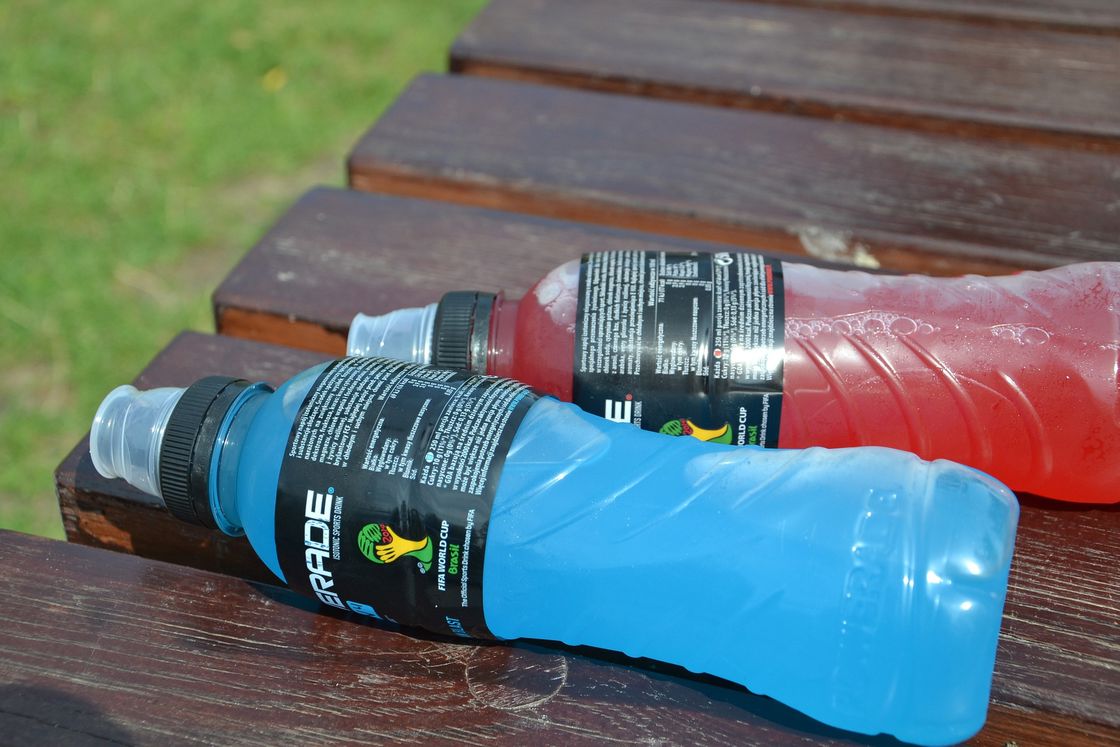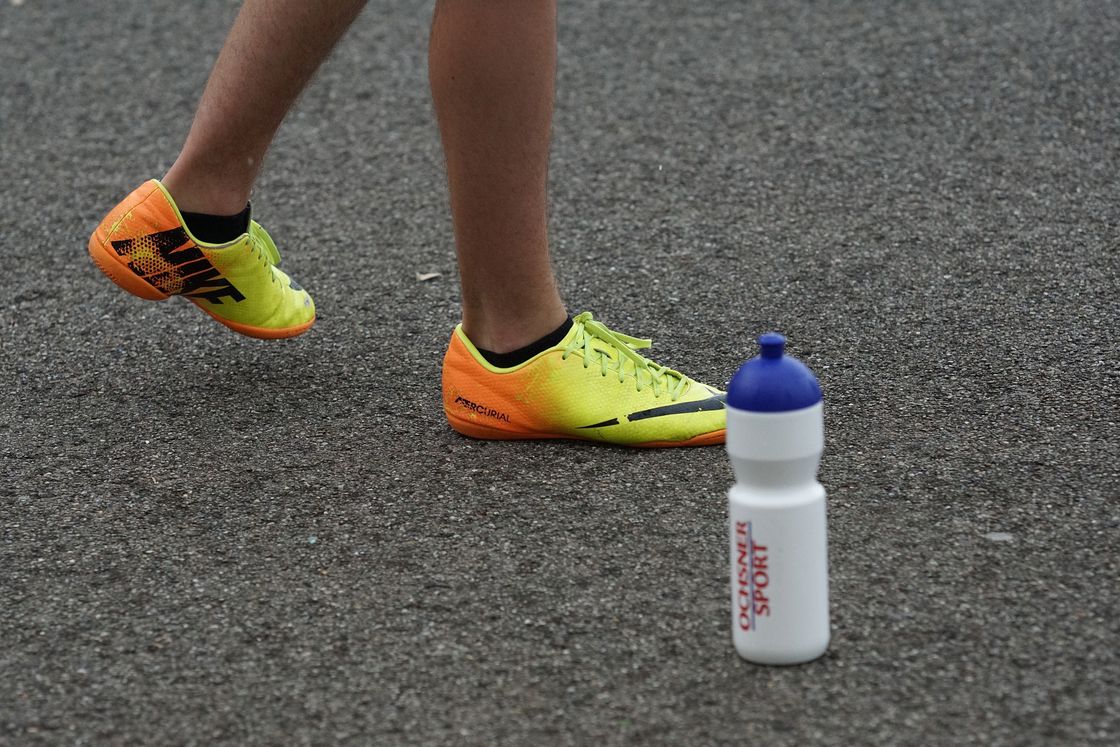Aspiring for optimal workout results, one might ponder: should I drink electrolytes before or after a workout? This common dilemma strikes a chord with many fitness enthusiasts. I’ve sifted through numerous studies and applied my athletic experiences to unearth the nuances of electrolyte timing. Together, let’s delve into it!
Should I Drink Electrolytes Before or After a Workout?
You can drink electrolytes before and after a workout. The timing and amount depend on the workout’s intensity and duration. Consuming electrolytes before exercising aids in maintaining optimal muscle function and avoiding cramps during the activity.

Post-workout electrolyte replenishment is equally crucial, primarily to restore the minerals lost through sweat and facilitate swift recovery. After exercising, your body has expended essential minerals like sodium, potassium, and magnesium, which must be replaced to aid muscle recovery and prevent delayed onset muscle soreness (DOMS).
Remember that adapting these guidelines is crucial based on individual needs, the environment, and workout specifics. So to help you, let’s review some insights so you can make an informed decision next time.
What Are Electrolytes?
Electrolytes are essential minerals that carry an electric charge and are crucial in maintaining various physiological functions. They facilitate muscle contractions, help regulate body fluids, and support nerve signaling. We will explore three primary electrolytes and understand their unique roles in our bodies.
Sodium
Sodium governs the balance of fluids in and around your cells. It’s pivotal in maintaining blood pressure and is intrinsic to muscle and nerve functions. When you sweat, your body loses sodium, potentially impacting fluid balance and communication between nerve cells. Thus, adequate sodium is vital during high-intensity workouts or activities that induce significant sweating.
Potassium
Potassium works closely with sodium to regulate fluid balance, particularly inside the cells. It also plays a vital role in muscle contractions and nerve signaling, ensuring muscles work efficiently during physical activities. Adequate potassium levels are paramount to prevent muscle cramps and ensure optimal cellular function during and after a workout.
Magnesium
Magnesium is indispensable for energy production, muscle contractions, and maintaining a steady heart rhythm. It aids in moving calcium and potassium across cell membranes, which is crucial for nerve impulse conduction, muscle contraction, and normal heart rhythm. Ensuring ample magnesium levels before and after a workout can promote better performance and recovery.
Understanding these electrolytes and their respective roles provides a foundation for why they are emphasized in exercise and recovery contexts. Let’s further discuss how these help the body function smoothly.

The Hydration Process
Hydrating significantly impacts physical performance and recovery, involving more than just quenching your thirst. Before any workout, adequate fluid and electrolyte intake is paramount, equipping your body to handle ensuing exertion and heat generation. This pre-activity hydration, preferably initiated at least an hour beforehand, helps safeguard against premature fatigue and muscle cramps.
During exercise, the objective shifts towards compensating for the continual fluid and electrolyte loss, predominantly through sweat. Regular, balanced fluid intake during physical activity aids in sustaining performance levels, particularly in prolonged or intensive workouts. As confirmed by a study, dehydration has a significant impact on body’s performance.
Post-exercise, the focus pivots towards recovery through replenishing depleted fluid and electrolyte reserves. Ensuring a judicious rehydration process post-activity is pivotal for aiding muscle recovery and restoring balance within the body. Moreover, it diminishes the likelihood of post-exercise ailments and bolsters preparedness for subsequent physical engagements.
When to Consume Electrolytes
Electrolytes are essential in hydration, and have a pivotal role in sports performance, impacting everything from muscle function to cognitive clarity during exercise– as confirmed by a study. Thus, identifying opportune moments to consume electrolytes becomes fundamental in athletic pursuits.
Before Exercising: Preloading
Preloading with electrolytes seeks to circumvent potential shortfalls during physical exertion. This strategy facilitates:
- Enhanced muscle response
- Mitigation of early-onset fatigue
Embracing this proactive approach could anchor your performance, offering a stable outset for physical exertion.
While Exercising: Hydrating
Timely electrolyte consumption during exercise can thwart decreased physical and mental performance. The focus here revolves around:
- Sustaining hydration levels
- Deterring muscle cramps
Hydration in the heat of the activity works to bridge initial vigor with sustained, consistent performance throughout high-intensity workouts seamlessly.
After Exercising: Replenishing
Replenishing electrolytes post-exercise pivots on recovery, seeking to rebalance and rejuvenate the body. Key aspects to consider are:
- Accelerating recovery
- Restoring mineral balance
Implementing a tailored post-exercise electrolyte strategy can catalyze recovery, providing a smoother transition back to physiological homeostasis.

The Essential Electrolytes
In the dynamic theater of bodily functions, electrolytes establish themselves as critical players. Their influence permeates various physiological processes, ensuring the orchestration of numerous vital functions.
Sodium
Sodium commands a pivotal role in cellular operations and fluid balance. Paying heed to sodium allows for:
- Regulation of fluid volume
- Maintenance of nerve function
Achieving an equilibrium in sodium levels can prevent unwanted effects in cellular communication and fluid homeostasis.
Potassium
Potassium operates predominantly inside cells, wielding influence over muscle and heart functionality. Key aspects include:
- Modulating muscle contractions
- Governing heartbeat regularity
Optimal potassium intake can mean the preservation of a steady heartbeat and unimpeded muscle functionality.
Magnesium
Magnesium quietly oversees numerous enzymatic reactions while affirming structural stability to bones. It facilitates:
- Enzyme activation
- Bone fortification
Ensuring adequate magnesium can harmonize enzymatic activities and fortify skeletal structures, substantiating its silent significance in overall health.
Related Questions
Why Should You Take Electrolytes Before a Workout?
Drinking electrolytes and sports drinks before a workout aids in maintaining fluid balance, ensuring muscle function, and preventing cramps during exercise by replenishing the electrolytes that will be lost through sweat.
When Should I Drink Electrolytes?
Electrolyte consumption is crucial before, during, and after workouts to preload, hydrate, and replenish. Additionally, they are beneficial when recovering from illnesses that cause dehydration, such as gastroenteritis.
Conclusion
Strategically timing your electrolyte intake, before or after a workout, is pivotal in enhancing sports performance and ensuring robust recovery. Adhering to the guidelines shared, ensures optimal hydration, supporting your physical endeavors and strengthening your overall wellness journey effectively.